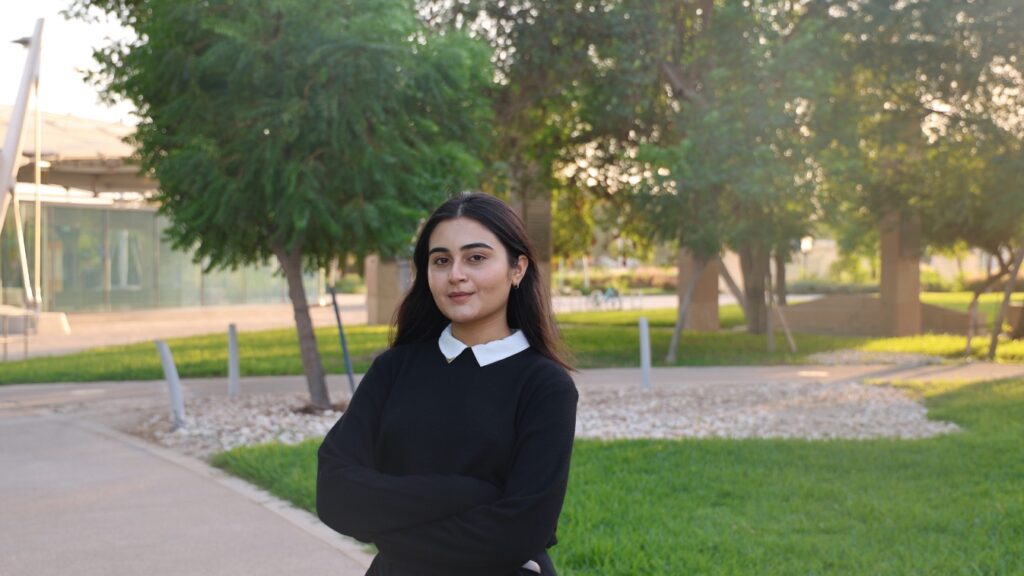How GU-Q Taught Me the Value of Unlearning

Zarrish Ahmed is a senior at Georgetown University in Qatar majoring in International Politics with an independent Certificate in South Asian Studies. She reflects on how studying South Asian history reshaped her understanding of identity, power, and education.
When I first arrived at Georgetown University in Qatar, I didn’t expect my education to begin with unlearning. I had spent most of my life studying under a British curriculum, memorizing dates and names from textbooks that treated the empire as a civilizing force rather than a system of domination. History, as I knew it, was neat and polished, narrated through the eyes of the colonizer. It took just one semester at Georgetown for that version to start unraveling.
My turning point came when I took my first course with Professor Reza Pirbhai on South Asian history. Suddenly, the stories I thought I knew looked different when told from the perspective of those who lived them. We discussed not just what happened, but how history is written, who gets to tell it, and whose voices are left out. Sitting in that classroom, I realized that my education until then had prepared me to reproduce a narrative, not to question it. Georgetown challenged me to do exactly that; to question, to challenge things I thought I could not.
That realization became the foundation for something bigger. I decided to pursue a Certificate in South Asian Studies, a program that does not formally exist at GU-Q. I was told it would be complicated, maybe even impossible. But I had already learned that questioning systems is part of what learning should be. So I began drafting course proposals, meeting with professors, and navigating approvals. It was a slow process of emails, signatures, and long conversations about why South Asian history deserved a dedicated place in our curriculum. Eventually, I became the first student at GU-Q to officially pursue the certificate.
It wasn’t just about checking off academic boxes. It was about claiming agency, the kind of agency that allows you to shape your own education instead of just receiving it. Through courses on colonialism, partition, and the Global South, I began to see how interconnected our histories are. The South Asian experience could not be separated from global narratives of power, resistance, and identity. I learned that history is not a static record rather it’s a living conversation between the past and the present.
Unlearning colonial narratives has been deeply personal. It meant recognizing that the stories my grandparents told me, about migration, loss, and perseverance, were as legitimate as the ones printed in schoolbooks. It meant seeing that history isn’t just what’s written in archives, but what’s carried in memories and communities. Georgetown gave me the space to reconcile those two worlds, the one I was taught and the one I inherited.
Looking back, I realize that unlearning was the most valuable lesson of all. It taught me that education isn’t about mastering content, it’s about expanding consciousness. It’s about having the courage to look at the stories you grew up with and ask, “Whose truth is this?” And sometimes, it’s about creating new spaces so that other students can ask the same question.
“The posts and comments on this blog are the views and opinions of the author(s). Posts and comments are the sole responsibility of the authors. They do not represent the views, opinions or policies of the University.”